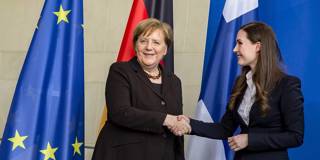In a democracy, a crisis is a political test: a leader must retain or strengthen the public’s trust, or risk being voted out in the next election. But in an autocracy, a crisis is a threat to the regime’s legitimacy, which is why the official response is so often denial.
TEL AVIV – The COVID-19 crisis has become the latest front in the escalating clash of ideologies that has become a central feature of geopolitics in recent years. Representing authoritarianism is China, which has touted the success of its aggressive lockdown strategy in curbing the coronavirus’s spread. Representing democracy are a broad array of countries, some of which have responded far worse than others. So, which political system is better suited to managing crises?

TEL AVIV – The COVID-19 crisis has become the latest front in the escalating clash of ideologies that has become a central feature of geopolitics in recent years. Representing authoritarianism is China, which has touted the success of its aggressive lockdown strategy in curbing the coronavirus’s spread. Representing democracy are a broad array of countries, some of which have responded far worse than others. So, which political system is better suited to managing crises?